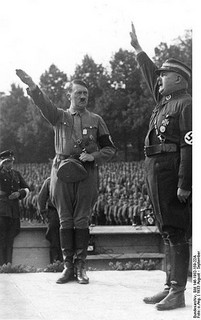Coaching and Emotion: The Godfather Syndrome

There is a famous scene in the first movie of The Godfather trilogy, when the four Corleone brothers meet right after their father has been shot and is struggling between life and death in a hospital. The topic they discuss is if and how they have to retaliate against Virgil “The Turk” Sollozzo who ordered the shooting. At a certain point in the discussion, Michael Corleone/Al Pacino, the youngest brother, the only brother not involved in his family mafia business, proposes himself as the avenger in a plan where he manages to shoot Sollozzo. The elder brothers explain to him that the issue at stake, retaliation, “it’s not personal, it’s just business”, meaning that it has nothing to do with emotion, family values, the need of justice, the father-son relationship: it’s only a tool to protect the business and send a message to the “business community”.
What struck me (apart the fact I am Italian and I know that business better than the Godfather’s screenwriters ;-), is that for these guys family is not affect, emotion, relationship; it’s “just business”: this is why Michael’s brothers do not consider appropriate (and even harmful) the intention of avenging his father following an emotional reaction (while of course the killing itself can be an appropriate tool, but without emotional involvement).
Last week a client, struggling with her career, was talking about having a “professional demeanor”. To her, this was synonymous with “professional mask”, as opposite to “personal authenticity”, which she was patently not allowed to show at her workplace. Further inquiry led us to discover that for personal authenticity she intended “expressing emotions”, that is, the mask was intended to hide her emotions from her colleagues, because expression of emotions in general was not very welcome at her workplace. Basically, she and her firm were adopting a variant of the Godfather philosophy: it’s business, no emotion or affect needed per-se.
The step from “not expressing emotion” to “believe that you can stop/ignore feeling emotion” seemed closely related for her, while I had in mind what Antonio Damasio (Self Comes to Mind: Constructing the Conscious Brain, 2010) says: “The expression of emotions can doubtless be modulated voluntarily. But the degree of modulatory control of the emotions evidently cannot go beyond the external manifestations. Given that emotions include many other responses, several of which are internal and invisible to the naked eyes of others, the bulk of the emotional program is still executed, no matter how much willpower we apply to inhibit it. Most important, feelings of emotion, which result from the perception of the concert of emotional changes, still take place even when external emotional expressions are partially inhibited.”
That led me to think of how many times I challenged these limiting beliefs about emotions, all variants of the Godfather syndrome: when it comes to emotions and business, clients often found or put themselves in a mafia business, implicitly negating reality, unavoidability and the value of emotional states. Over time I collected a list of common misconception of emotions in the workplace (and, more in general, in organizations) that I call “storytelling about emotions”. Here is it, with the “false” part in bold:
- You are/I am too emotional (I credit this one to Jim and Michele McCarthy, in their book, Software for your Head)
- It’s wrong to feel like this
- There is no reason I/you feel like that
- You make me feel …
- Expressing emotion can be disturbing
- One must be rational
- One cannot think and feel at the same time
- Emotions are dangerous
- Emotions are not thoughts
- Emotions cannot be changed
- Emotions can be masked
Every belief in the list favors detaching between parts of the self in a person, which in turn prevents development, change for the best, growth and happiness. This is why I consider part of my job as a coach to help clients with mafia-like emotional approaches to explore how the world can be outside the Godfather mindset.
David was born in Florence in 1966 just a few months before the deluge, and that's a kind of destiny. As an executive is in charge for general management in a IT Firm, as a certified NLP counselor helps clients to explore their life experience, as a Coach helps clients getting what they really want , as a conflict mediator witnesses how tough and creative a relationship can be, as a trainer helps trainees in stretching their brain, growing and learning, as a public speaker enjoys co-creating experience on the fly, as a dad loves his two children. As a man he is grateful and worried that he’s got this wonderful life. And he’s fond of categorizing his professional roles :-). More about him at http://papini.typepad.com/lifehike/
David is a member of SCM's Certified Coach Training Program.



